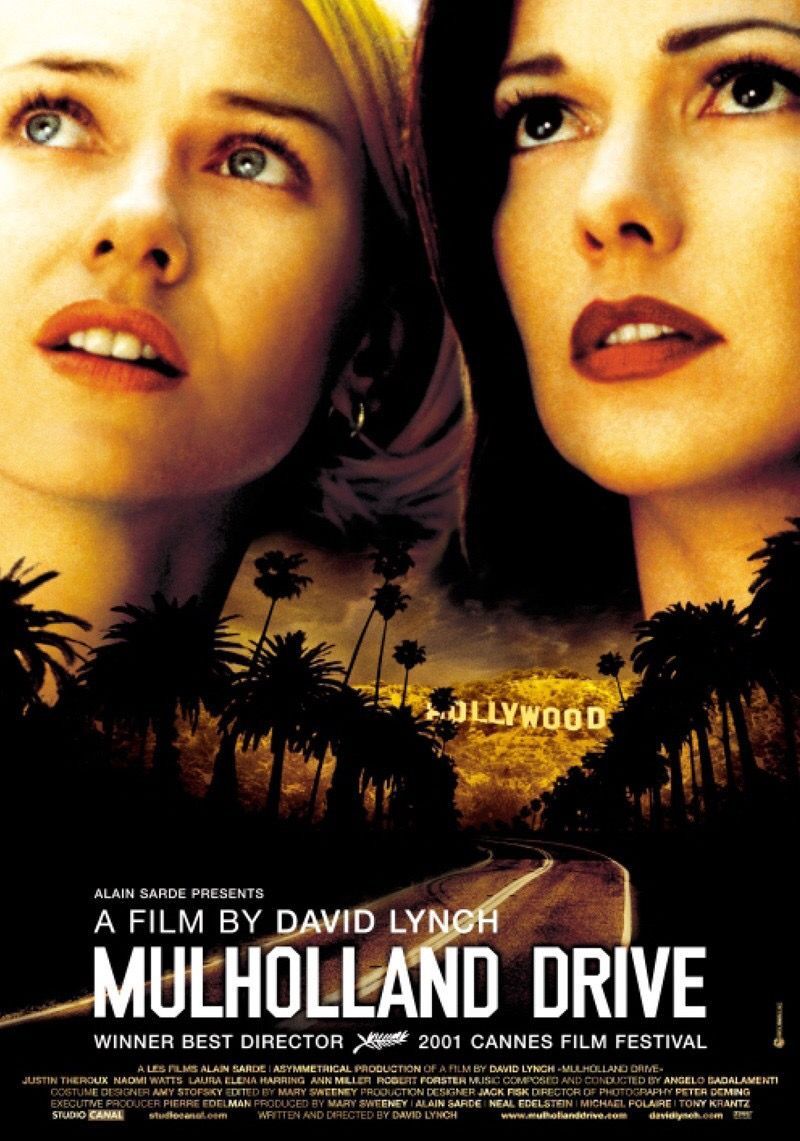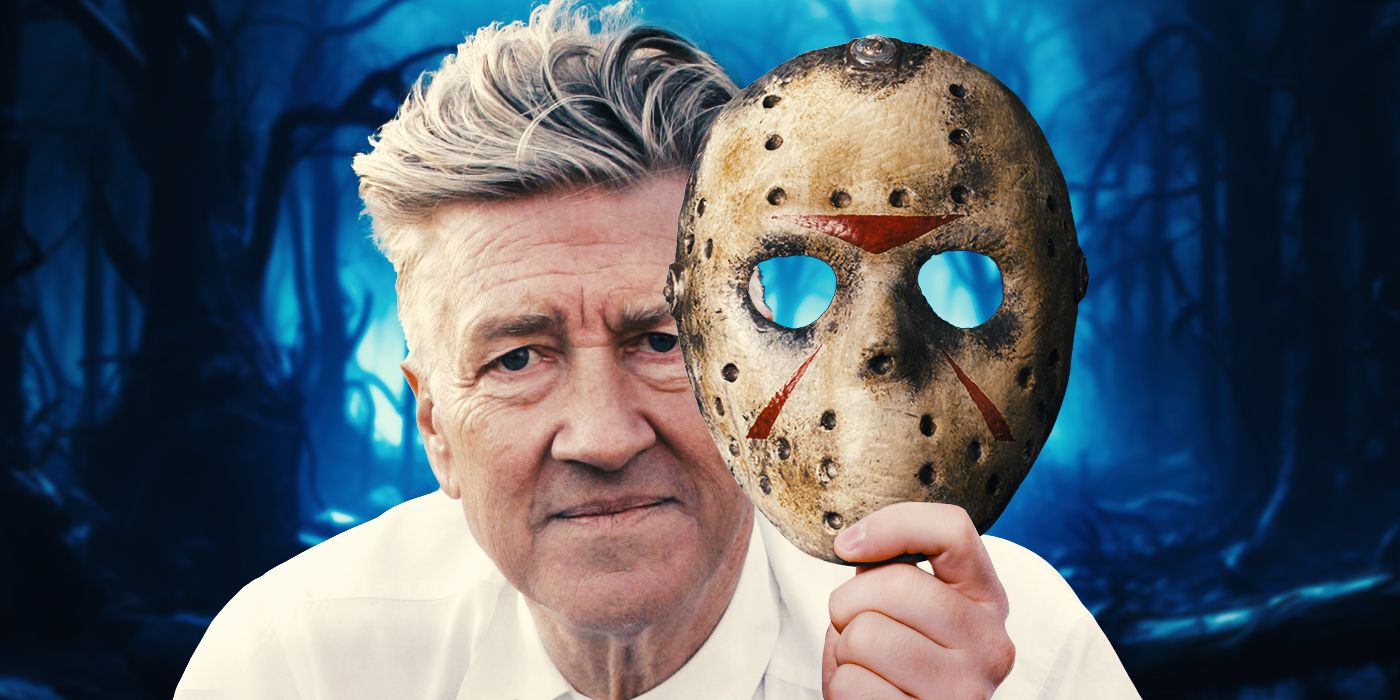Life can be a bad dream, can't it? The idea of deeply analyzing dreams and ruminating on their metaphorical context often plays like a pretentious exercise by commentators trying to one-up each other on their film literacy. However, David Lynch has been codifying the evocation of dreams in film and television for decades with an assured control and curiosity that strips away any clichés involved with surrealism. Like the most profound dreams, Mulholland Drive, which is now considered Lynch's masterpiece, can't be explained in just a few words. The writer-director's 2001 story about denizens living in Hollywood, the land of hopes and dreams, submerging into a nightmarish odyssey, is both a torrid examination of the perils of show business and a sensitive portrait of the loss of identity. Mulholland Drive's impact over 20 years later lingers over the most acclaimed arthouse and independent films of today and for the foreseeable future.
With Lynch having passed away at the age of 78, Mulholland Dr. will likely go down in history as one of Lynch's greatest films—if not his absolute best. It's a tremendous film that understandably has already been called one of the best films ever made. There's never been a better time to drive down Mulholland.
Broken Dreams Turn Into Nightmares in 'Mulholland Drive'
Mulholland Drive, which landed at #8 on Sight and Sound's 2022 Greatest Films of All Time poll, is the rare film from this century recognized as a canonical masterpiece. Most remarkable of all, the film was initially conceived as a television series, but when ABC, the network that aired Twin Peaks, passed on Lynch's bizarre, frequently tangential spelunking into the subconscious, he expanded his TV pilot into a feature and made one of the finest achievements of the art form. Lynch's psychological drama/mystery-thriller chronicles the strange and inexplicable occurrences around the titular Los Angeles street, specifically involving Rita (Laura Harring), whose amnesia caused by a car crash has made her forget her identity, and Betty (Naomi Watts), an effervescent, aspiring actor who befriends Rita and helps her search for answers to her identity. The B-plot follows the trials and tribulations of a visionary director, Adam (Justin Theroux), who is forced to comply with the demands of various industry power players.
Say what you want about David Lynch. Some might argue he's too self-indulgent or esoteric for his own good. However, you can't knock him for being cynical. Perhaps more than any filmmaker of his caliber, Lynch's love and respect for his character radiates on screen, which only makes the troubling events in his films more tragic. Where most films would treat Betty's cheery earnestness upon arriving in Los Angeles with a tongue-in-cheek attitude, Mulholland Drives forces the viewer to attach oneself to her aspiration, even though previous scenes have unearthed an eerie dark side to the sunny glow of Hollywood. Betty's positivity is the kind of infectious emotion that can only be conveyed in a dream, and yet, we believe that she has transcended reality and entered the luscious dream world of becoming a famous Hollywood actress. Throughout the film, her pursuit of acting excellence drives her to transform into Rita, a symbol of celebrity royalty, but a person lacking interiority.
David Lynch Paints a Portrait of Blurred Realities in 'Mulholland Drive'
Mulholland Drive has grown in estimation partially because, like with most daring works of art, the public is slow to recognize something audacious. However, what's more pertinent to this film is its evocation of a blurred reality. In the digital age, our everyday life often seems like it exists in an empty void, and with the influx of artificial intelligence, the line between concrete life and artificiality is getting thinner. This harrowing phenomenon has recently been tackled in envelope-pushing arthouse fare, including Jane Schoenbrun's psychological horror film I Saw the TV Glow and Bertrand Bonello's time and genre-hopping dystopian sci-fi movie The Beast. These films, while original in their own right, are indebted to David Lynch, particularly Mulholland Drive and its depiction of the disillusionment of an idyllic utopia. In the film, an amnesiac Rita gives herself that name after seeing a poster for Gilda, starring Rita Hayworth. With parasocial relationships and influencer culture as prevalent as ever, people, looking for comfort and acceptance, model themselves after fashionable people they see on screen.
Unsurprisingly, David Lynch's vision of Los Angeles subverts the expected glitz and glamor of the city of dreams. L.A., a place built upon artificiality and a ghostly force of nature controlling the film industry, destroys the innocence of aspirational figures like Betty. Even in broad daylight, the streets of L.A. evoke the spirit of a liminal space. The director makes this highly populated city feel incredibly lonely. Because his work operates as a Pandora's Box of mystery and coded messages about the state of humanity, Lynch has accrued a passionate following, and Mulholland Drive is a sacred text for those aspiring to use art as a device to solve the cryptic nature of the world. Still, the film's ominous textual undertones and sprawling narrative structure never lose sight of Lynch's wholly sympathetic treatment of the decay of dreams into nightmares.
Mulholland Drive is available to rent on Prime Video in the U.S.

After a car wreck on the winding Mulholland Drive renders a woman amnesiac, she and a perky Hollywood-hopeful search for clues and answers across Los Angeles in a twisting venture beyond dreams and reality.
Release Date October 19, 2001
Director David Lynch
Runtime 147 minutes










 English (US) ·
English (US) ·